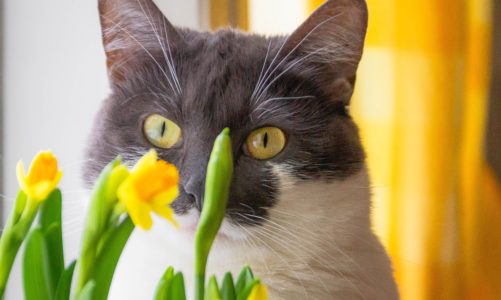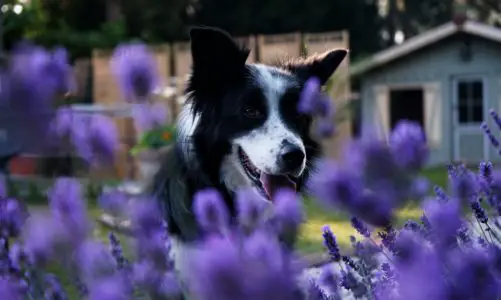The demand for essential oils continues to grow unabated. It comes as no surprise really as more people seek to free themselves from chemical-laden everyday products. It turns out, essential oils may have even more benefits than we are aware of. Enter Agricultural Aromatherapy. Even though this field remains largely unexplored, research carried out in Italy would suggest that essential oils from plants such as Lavender, may function as natural herbicides to prevent weed growth among crops. A quick glance on organic gardening forums reveals that experienced green-fingers already know this. So, no, essential oils will not kill plants, but rather protect them. Generally speaking, essential oils can do what most common synthetic pesticides and herbicides do, which is to protect plants from fungi, parasites, insects, bacteria and keep weeds at bay. In this article, we answer some commonly asked questions around this subject.
Which essential oils are safe for plants?
So we know that lavender essential oil is not harmful to plants. You can also try any of the following essential oils listed below to help treat fungi infections and repel pests. Experiment on a few leaves first. Not only are essential oils good for plants, but they also attract pollinators like bees and butterflies to your garden. Create a fragrant oasis for bees with essential oils such as orange blossom, lavender, yarrow, and helichrysum. Butterflies are attracted to lavender, sage, and helichrysum. Simply saturate small strips of cloth with essential oils and gentle tie them around either the stems or branches of plants.
- Cinnamon Bark – fungi, cockroaches, silverfish, dust mites
- Clove – good all-round insect repellent
- Citronella – spiders, gnats, fleas, mosquitos
- Garlic oil – mosquitoes
- Lavender – good all-round insect repellent (especially soft-bodied bugs)
- Lemon – fungi
- Lemongrass – ants, gnats, fleas, mosquitos, ticks
- Neem oil – fungi, nematodes
- Oregano – fungi
- Peppermint – fungi, lice, ants, spiders, aphids, and beetles
- Pine oil – fleas, slugs, snails, ticks
- Rosemary – fungi, flies, mosquitoes, ticks moths
- Tea Tree – good all-round insect repellent
- Thyme – fungi
Do essential oil diffusers harm plants?
When used safely indoors, essential oil diffusers do not kill plants. In fact, they can be very beneficial for you and your plants. There are 3 main factors that influence the health of indoor plants, such as poor air quality, lack of natural sunlight, and overwatering. These conditions typically promote the growth of fungi. Tea tree essential oil may prove very effective in preventing and treating plant fungus. You can choose to add a few drops of Tea tree oil in a diffuser to purify the air or gently mist the stems and soil of the plant with a diluted mixture.
Tips
- Since tea tree oil may cause delicate leaves to become sensitive to the sun, it is best to avoid these.
- Also take care when using essential oils around pets and children in the home. Accidental digestion and inhalation of tea tree oil may prove toxic.
- Use only pure essential oils. Oils that contain synthetics or added artificial fragrances can harm plants.
How do I make an mix and use an insect repelling essential oil?
You can add your essential oil of choice straight to your watering can for quick absorption by the root systems. Avoid watering plants in the heat of the day in this way, since the oil in the water can burn the leaves of the plant. Alternatively add about 10 drops of essential oil to a spray bottle, filled with water and spray directly onto plants. When using Tea tree oil to treat fungus, add 20 drops of oil to 1 cup of water and mist the soil directly. Pure essential oils will not kill plants as long as it is diluted.
Last thoughts on essential oil that are safe for plants
Essential oils do not kill plants and offer us a natural pest control alternative to the many insecticides on the market that causes great harm to our environment and health. When choosing essential oils that will not kill your plants, make sure they are as safe for you as they are for your plants. Cheap oils are usually synthetic reproductions and may contain compounds that are harmful. You usually get what you pay for. A good-quality brand such as Young Living uses its own essential oils for weed and pest control on its own farms.
Others enjoyed these articles too:
Does essential oil quality matter?
Which essential oils are bad for birds?
These simple, yet effective essential oils repel Japanese beetles.
What are the signs of essential oil toxicity in dogs?
40 popular houseplants that are poisonous to babies.
How much vitamin C is in a lemon essential oil?
Disclaimer and Cautionary note: Sunny Life Mag is a digital magazine for entertainment. The articles published are not here to diagnose or treat any plant health conditions or medical conditions as it pertains to human/ animal health. The contents of this website are for informational and entertainment purposes only and do not constitute plant advice; the content is not intended to be a substitute for professional advice or treatment. Always seek advice from a plant expert when using essential oils for treating any plant conditions.
Affiliate Disclosure: Some of the links that appear on this site are affiliate links. We may receive a small commission when you make a purchase. These commissions help to improve this site and to fund further research. The buyer does not pay any commission whatsoever but is an arrangement between the supplier and this site. Our selection of products is carefully curated and includes only those products we believe in.



